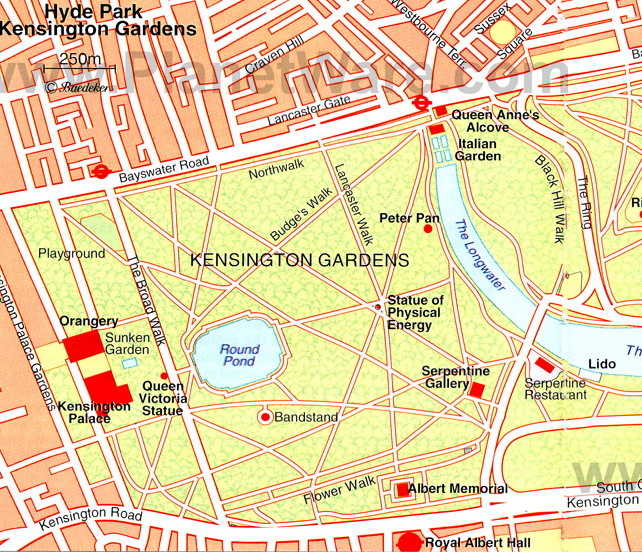Royal Parks say: "William III bought what was originally part of Hyde Park in 1689. An asthma sufferer, the king found the location quiet and the air salubrious and so he commissioned Sir Christopher Wren to design the redbrick building that is Kensington Palace. Queen Anne enlarged the Palace Gardens by 'transferring' 30 acres from Hyde Park and was responsible for the creation of the Orangery in 1704."
Queen Caroline extended the Gardens even further into Hyde Park.
This section lists the memorials where the subject on this page is commemorated:
Kensington Gardens
Commemorated ati
Buck Hill bastion
This is really an information board rather than a plaque and has a number of ...
Ha-ha in Hyde Park
We find the terminology used on the information board confusing; 'bastion' is...
Other Subjects
Philip Pusey
One of the Commissioners for the Great Exhibition, 1851.Agriculturist. Born Pusey, Berkshire. Died Christ Church, Oxford.
Groundwork
An environmental agency based in Birmingham. It works with communities across the United Kingdom, to help them create places in which to live and work in a greener, more sustainable way and to impr...
Jane Loudon
Author and pioneer of science fiction. Born near Birmingham as Jane Webb. Wrote "The Mummy!: Or a Tale of the Twenty-Second Century" and published it in 1827, anonymously. This was reviewed favour...
William George Spencer Cavendish, 6th Duke of Devonshire
The "Bachelor Duke" after whom the Cavendish banana was named. Born Paris, son of the 5th Duke, who died in 1811. Had a strong interest in gardening and agriculture and gave his estates a lot of a...
Well Hall Pleasaunce
Wellehawe as an area in Eltham was first recorded in 1401. It still contains a Tudor barn built by William Roper, the son-in-law of Sir Thomas More. Another main feature, used to be Well Hall (pict...
Previously viewed
Ernie Wise OBE
Comedian, one half of Morecambe and Wise. Born Leeds. Died Nuffield Hospital, Gerrards Cross. The little one on the right in our picture.









Comments are provided by Facebook, please ensure you are signed in here to see them